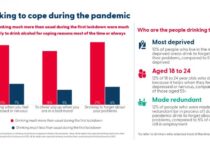Improving Page Speed for SEO
SEO is comprised of a lot of moving parts, each one playing an important role in the success of your strategy. One part of SEO that might slip through the cracks is website page speed. Page speed plays a bigger role in SEO than one might think. Here are some things to consider and ideas to help improve your business website page speed:
Why Page Speed Matters
In addition to search engines providing their users with the most relevant websites and pages related to their searches, they want to give them a good experience as well. Users don’t want to waste time visiting pages that take forever to load. When pages don’t load fast, visitors leave to find something better.
If your pages are slow to load, search engines, such as Google, are not going to promote your website even if you have high-quality content. The speed of the page can also affect your SEO indirectly by taking into account the amount of time people spend on a page and bounce rate. If people do visit your website, but pages load too slowly, they will leave (or bounce) quickly.
Improve Page Loading Speed
The first step to improving page loading speed to know what’s slowing down the loading of individual pages. Here are some reasons that might be behind your slow loading pages and how you can fox them:
Server Performance
Poor server performance can be attributed to the quality of your web host. If you’re using a cheap web host, it’s likely that your website is sharing resources and space with other websites, which is why your pages are slow to load. If your web server is not performing as it should, even when everything else is working properly, pages will load slowly. A good web host with adequate server performance is required before other changes are made.
Flash Content
Flash content can add interactivity to your website, but it can also cause pages to load slowly. flash content can be heavy and the more you have on a page, the slower it will load. Remedy this by removing any unnecessary flash content or reduce their size.
Outdated CMS
A content management system that has not been updated can result in slow loading pages. Updating your CMS on a regular basis will help loading time as well as keeping the software free of bugs and security issues that can slow things down.
Heavy Traffic
If your website is drawing in a lot of traffic, this could be slowing down your page speed. While this is a good problem to have, you need to contact your service provider and have additional resources added to your website, otherwise visitors will leave and not come back, which will lower your conversion rates. Getting people to your website it one thing, but you need to keep them there.
CDN Service
If you’re not using a CDN service, but you have a large or popular website, this could help solve slow page issues by spreading the load of the server across multiple locations. The goal of a CDN is to provide high-quality performance.
Clean Code
If your code is dense, this could be the reason for slow loading pages. To fix this, remove any elements that are not relevant. Reducing the file size of codes can be done using online tools if you don’t have coding experience.
By prioritizing fast pages on your website, you give your business the benefit of not only drawing in both old and new visitors, but keeping them there to explore and make purchases. Consumers don’t have time to wait for slow loading pages and will quickly move on. The process of improving page speed can be time-consuming, but worth it for the sake of your business success.
Your SEO relies on the loading speed of your pages. Make it a regular part of your strategy to check how quickly pages load and fix the issues that may be slowing them down.
The post Improving Page Speed for SEO appeared first on Brick Marketing – Digital Marketing Agency.


